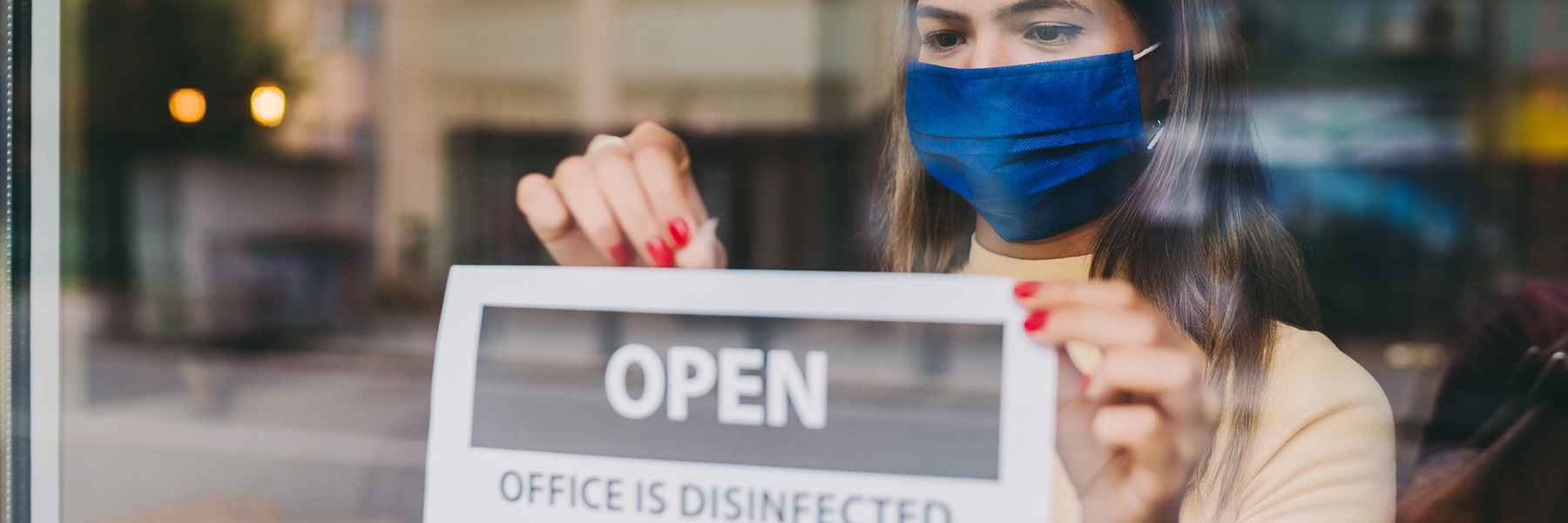Could I Get Reinfected with COVID-19?

A few confirmed cases worldwide have shown that becoming reinfected with COVID-19 is possible.
At this point, our primary concern is taking the proper precautions to prevent the infection and spread. However, a few news reports have recently raised another disturbing idea — the risk of becoming reinfected with the virus after a first infection.
Our knowledge of COVID-19 is still in its early stages.
According to the CDC, we know even less about the risks of COVID-19 reinfection. In fact, as of September 10, 2020, the CDC had not acknowledged any COVID-19 reinfections. The reasoning was that the virus could linger at low levels in the body for up to three months, and none of the currently identified reinfections occurred more than three months after the initial infection.
However, as noted in a Scientific American report, a scientifically-confirmed reinfection case occurred in Hong Kong and a second was recorded in the United States.
How does the possibility of reinfection change the outlook on the pandemic?
At this point, it’s too early to tell, says Jose Castro, M.D., an infectious disease expert at the University of Miami Health System.
“This is a new virus and a new disease,” he says. “It is still unknown if people can be reinfected, how often, and what the short- and long-term consequences of this infection are.”
With most diseases, a second infection is often less severe than the first. Your body’s immune system becomes familiar with the disease and begins to mount a defense. But again, we don’t know enough about COVID-19 to know whether or not this will hold true, says Dr. Castro.
“In general, many infections are more severe without prior immunity, but there are some exceptions to this rule,” he says. “For example, in Dengue fever, the fatal cases only occur in patients who have reinfection with a slightly different Dengue virus.”
The minimal number of identified reinfections also provides no help in this area.
While the reinfection case identified in Hong Kong presented no symptoms to the individual during the second infection, the United States’ reinfection case presented more severe symptoms than the first infection.
Reinfection could also impact the development of a vaccine. Here again, there are a lot of unanswered questions. But the potential of reinfection means that multiple COVID-19 vaccinations may be needed to move forward to protect against the disease.
“Certainly, this is a concern,” says Dr. Castro. “The vaccine studies will probably inform us about this concern. These studies will be well-positioned to find these cases should they occur.”
The key? Protect yourself.
Despite the fears related to COVID-19 reinfection, you shouldn’t change your approach to protecting yourself, your family, and your community from the illness. People should remain vigilant and follow proper precautions, he says, even if they have been infected before.
- Wear a mask.
- Keep a physical distance of at least six feet.
- Wash your hands well and often.
“The best way to avoid these risks is not to be infected in the first place. Do not assume that people cannot be reinfected,” he says.
Wyatt Myers is a contributing writer for UMiami Health News.
RESEARCH NEWS
What is Regeneron?
The antibody drug Regeneron consists of a “cocktail” mix of two antibody treatments that may help treat COVID-19 patients.
“In theory, the combination of two antibodies might be more effective in combating the virus, especially if it mutates,” said Dr. Gary Kleiner, who became interested in Regeneron when searching for therapies to protect highly vulnerable patients, especially those he treats with primary immune deficiency disorders and who are not able to form immune defenses against the virus. Read more.
UM Begins Second COVID-19 Vaccine Clinical Trial
The University of Miami Miller School of Medicine is a major research center for infectious diseases, particularly HIV and AIDS. UM initiated vaccine trials for COVID-19 in July as a partner site with the National Institutes of Health COVID-19 Prevention Trials Network. The Moderna vaccine was the first to be tested through the network.
“Conducting a vaccine clinical trial needs a team of teams approach from the research community and willing volunteers,” said Dr. Dushyantha Jayaweera, M.D., principal investigator. “This is a historic moment and these vaccine trials give us hope.” Read more.
